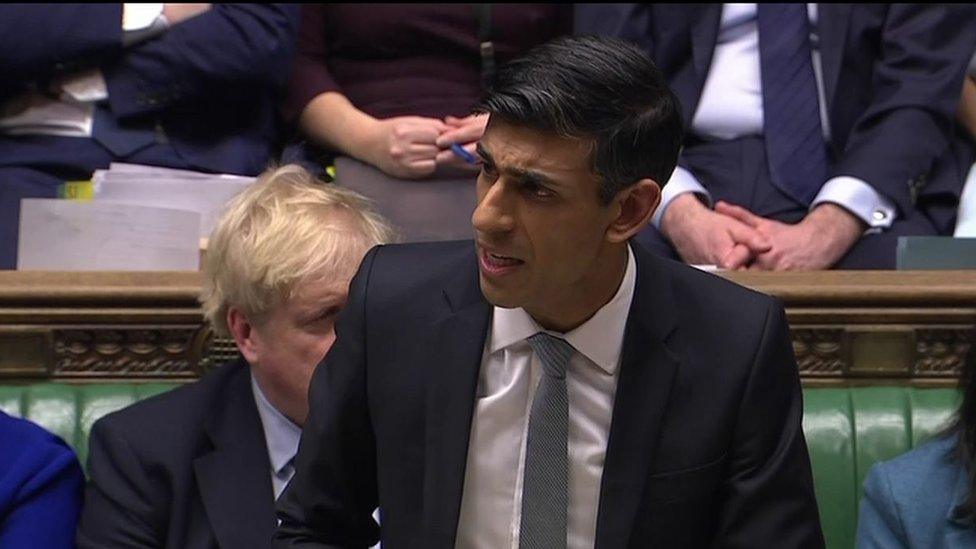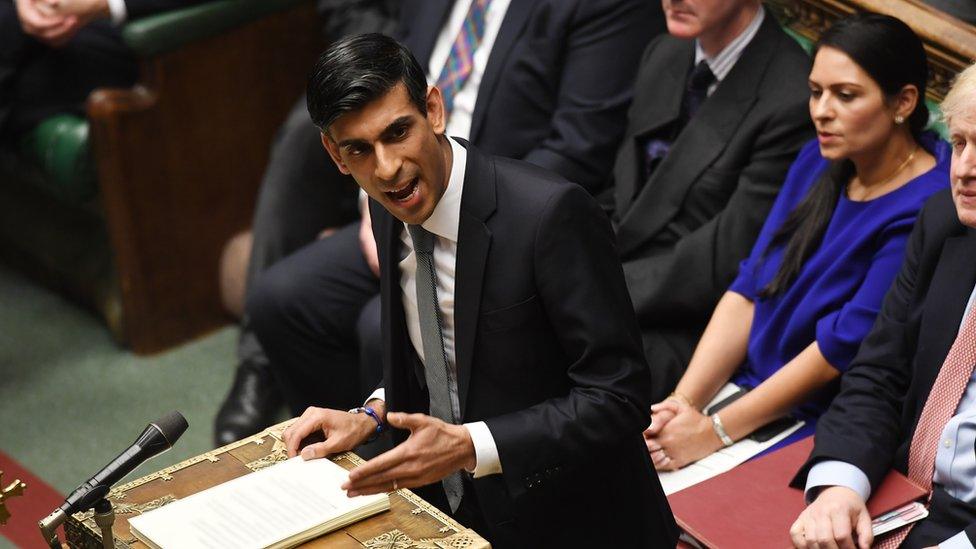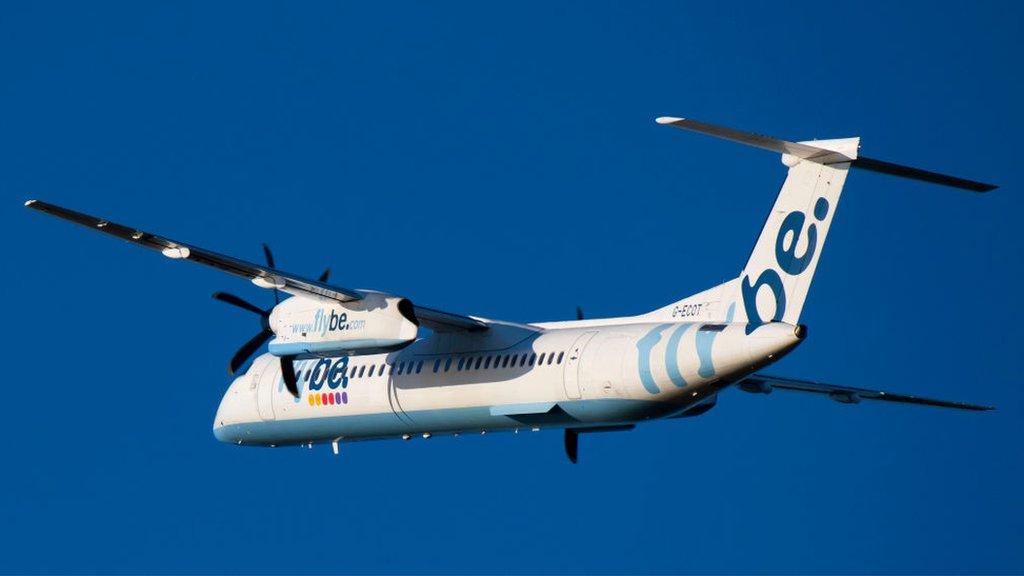Budget: NI to receive more than £200m for public services
- Published

There was no announcement on cutting or abolishing air passenger duty to the disappointment of business groups
The Chancellor, Rishi Sunak, says Northern Ireland will receive more than £200m extra for public services as a result of his Budget.
On Wednesday, Mr Sunak announced a £12bn package of measures aimed at tackling the impact of coronavirus.
They include waiving rates bills for small businesses in England.
However, Northern Ireland's Finance Minister Conor Murphy has not committed to giving small businesses a one year waiver on their rates bills.
Rates, the property taxes paid by businesses and households, are a devolved matter.
Mr Murphy said the NI Executive would "study the detail of the proposal before deciding how we can best support small businesses here".
He added: "With finite resources and infinite demands, myself and ministerial colleagues will take a collective approach to prioritisation, making the best possible use of the available resources.
"We will now move forward and put in place a Budget by the end of March."
He also said that the money allocated to Northern Ireland "fails to deliver the funding needed to provide first class public services".
Of the money allocated, £138m is for infrastructure spending with £77m remaining for day-to-day spending.
However, Mr Murphy said more money could be made available to deal with coronavirus if required.
'A false dawn'
Northern Ireland business groups were left disappointed that there was no move to cut or abolish Air Passenger Duty (APD).
APD is a levy paid on all flights taking off in the UK and was cited by FlyBe as a reason for its failure.
FlyBe accounted for about 80% of flights from George Best Belfast City Airport and a cut in APD was viewed as a way to attract new airlines.
The DUP's Sammy Wilson said that far from turbo charging the Northern Ireland economy it was "a false dawn" with a "minuscule" spending lift for Stormont.
Stephen Farry of Alliance said Northern Ireland's particular circumstances have not been taken into account.
He said: "Nothing on APD, nothing to help businesses prepare for the NI Protocol."
- Published11 March 2020

- Published5 March 2020
